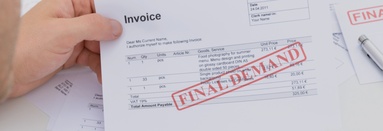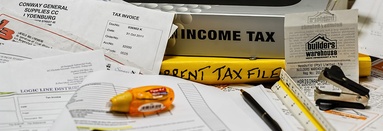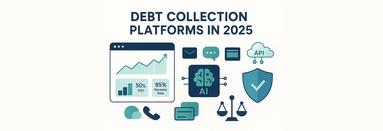Unpaid invoices are still much more than just a financial burden—they can also disrupt operations, put a strain on cash flow, and damage client relationships. For business owners, entrepreneurs, and enterprise managers, knowing when to bring in legal muscle is a critical decision. So, is it worth getting a lawyer for debt collection? The answer lies in your specific circumstances—but for many commercial cases, the benefits can be substantial.
Understanding the Cost of Unpaid Debts in Business
When a client refuses to pay, the fallout goes beyond the amount owed. Your company might lose the cost of production, labor, overhead, and the opportunity to invest those resources elsewhere. Long-term, repeated bad debts reduce your working capital and limit your ability to grow.
This is why many businesses explore external help—either via agencies or legal professionals—to recover what’s rightfully theirs.

In‑House vs. Professional Debt Collection: What’s the Difference?
Challenges of In‑House Collections
Collecting debts internally can work for small balances or friendly clients. But it rarely succeeds in more complex or contentious situations. Internal teams often lack the time, legal knowledge, or persistence needed for difficult accounts.
Benefits of Legal Intervention
A lawyer brings formal authority and legal leverage. Simply receiving a letter from a law firm can prompt a non-paying customer to act. Moreover, lawyers can escalate matters to court—a critical difference compared to standard collection calls.
When Should a Business Hire a Debt Collection Lawyer?
While not every overdue invoice requires legal action, there are clear indicators that it’s time to escalate.
High‑Value Accounts Receivable
For debts over $10,000, especially in B2B transactions, the risk and potential reward of legal action increase significantly.
Delinquent Clients with Complex Contracts
If a contract includes clauses that require legal interpretation—like performance obligations, penalty terms, or arbitration—a lawyer is best equipped to navigate the terrain.
Cross‑Border or Out‑of‑State Claims
Jurisdiction matters. A lawyer can help file suit in the appropriate court and ensure you’re following the right state or international laws.

What Can a Debt Collection Lawyer Do That Others Can’t?
Legal Authority and Litigation Expertise
Only lawyers can file lawsuits, obtain judgments, and pursue legal remedies like asset seizures or garnishments. Their presence signals seriousness.
Navigating Complex Legal Terrain
Experienced attorneys understand how to handle disputes, bankruptcy filings, and evasive debtors who know how to work the system.
Sending a Legal Demand Letter
A formal demand letter from an attorney can often lead to quicker resolution—especially if the client was avoiding you but fears legal consequences.
Legal vs. Agency‑Based Collections: Which One to Choose?
Pros and Cons of Debt Collection Agencies
Agencies are often the first stop. They typically work on contingency and can be effective for smaller debts. However, they lack legal authority and can struggle with hard-to-reach debtors.
Pros and Cons of Debt Collection Attorneys
Attorneys bring legal weight and can initiate court action. However, they may charge retainers or hourly rates—though many offer contingency-based services for collections.
Understanding the Legal Process in Commercial Debt Collection
Pre‑Litigation Phase
Most lawyers begin by contacting the debtor, reviewing contracts, and negotiating. If things don’t resolve here, the next step is court.
Filing a Lawsuit
Attorneys will file a formal complaint. If the debtor doesn’t respond, they may win a default judgment. If they do, the case proceeds to discovery and trial.
Judgment Enforcement
Winning is just the beginning. A lawyer can pursue garnishments, liens, or asset seizures to enforce payment.
Costs Involved in Hiring a Debt Collection Lawyer
Contingency Fees vs. Hourly Rates
Many attorneys offer contingency fees—typically 20–40% of the recovered amount. For higher‑value debts, this is often preferable.
Legal Fees and Court Costs
Filing fees, service of process, and administrative costs vary by jurisdiction. A good attorney will be transparent about expected costs upfront.

How Retrievables Makes the Process Smarter and Easier
Specialized in Commercial Debt Recovery
Retrievables isn’t just another platform. It’s designed exclusively for B2B and enterprise debt collection, understanding the unique challenges of commercial accounts.
Connecting You With the Right Lawyers and Agencies
Through its vast network, Retrievables matches your case with vetted professionals—whether you need a powerhouse law firm or an effective collection agency.
Data‑Driven Matching and Transparent Pricing
Retrievables uses data analytics to assess your claim and recommend the most effective recovery path, including cost estimates and historical success rates—no guesswork involved.
Visit Retrievables.com to submit your case and get matched today.
Frequently Asked Questions
1. What are the signs I need a lawyer for debt collection?
If a debtor is ignoring all contact, disputing charges aggressively, or the amount owed is substantial, it’s time to get legal help.
2. Are legal collection services too expensive for SMEs?
Not necessarily. Many attorneys work on contingency. The cost often scales with the claim size, making it viable for small to mid‑sized businesses.
3. How fast can a lawyer recover my unpaid invoice?
It depends on the case complexity, but legal letters often produce results within weeks. Litigation can take months but may result in full recovery.
4. Can Retrievables help with international collections?
Yes. Retrievables partners with attorneys and agencies skilled in cross‑border collections, ensuring compliance with local and international laws.
5. How does Retrievables vet their attorney partners?
Each partner is vetted for experience, specialization in commercial debt, and client satisfaction ratings—ensuring you’re matched with top professionals.
6. What’s the success rate of using a lawyer vs. a collection agency?
Lawyers generally have higher success rates on complex or high‑value claims because of their ability to escalate cases legally.
Conclusion: Making the Right Move for Your Business
So, is it worth getting a lawyer for debt collection? Absolutely—especially when you’re dealing with commercial debts, high‑value clients, or difficult legal terrain. A collection lawyer offers not just recovery, but resolution.
With Retrievables, you don’t have to navigate this alone. From start to finish, you get clarity, strategy, and results.








































